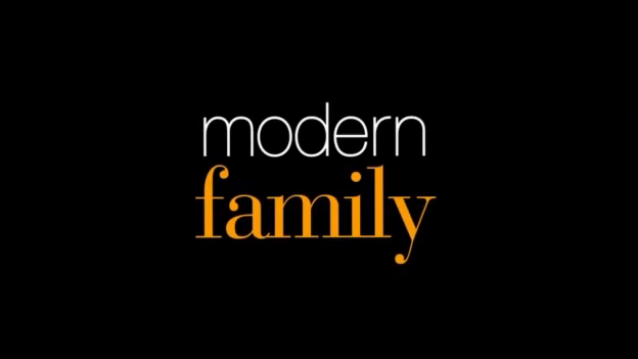The Feminist Ups and Downs in a “Modern Family”

I first watched “Modern Family” when it was fresh off its first season and had already won multiple awards. I was a freshman in highschool, lover of sitcoms, and casual feminist. I decided to watch the pilot, going in with a positive attitude, and the episode did not disappoint. Instantly, the show pulled me in with its developed characters, unique humor, and interesting storyline. Most interesting of all was the diversity: traditional, interracial, and gay-parent families all shown on one screen.
I followed the show from season to season, each episode keeping me just as intrigued as with the pilot. However, as my feminist identity became more pronounced, so did my views of feminism on the show.
Something that annoyed me after a season of viewing was that both Claire and Gloria, the wives of two of the families, were both homemakers. I respect stay-at-home moms greatly, but I felt the show held back Gloria’s and Claire’s character development by showing only the women’s involvement in their kids’ and husbands’ lives. Furthermore, I found it contradictory that a show with such diversity failed to portray a working mother. I hoped “Modern Family” would show the women outside the realm of domesticity, and I was pleased when they took action with Claire. She ran for city council in Season 3, flipped a house in Season 4, and took a job at her father’s company in Season 5. All three events gave me a stronger sense of Claire’s ambition, intelligence and capability outside of her house. They also shaped her into a modern, well-rounded mother by showing her as a woman with interests besides her family.
However, the development that Claire’s character carries is the development that Gloria lacks. “Modern Family” first showed Gloria and her husband, 25 years her senior, truly in love. In the pilot episode, it was easy to see why. Gloria was generous, kind, and patient. During one scene, when her husband gets upset that he was mistaken for her dad, she comforts him.
Recently, more episodes sexually objectify Gloria and play on the “trophy wife/gold digger” stereotype to the point of discomfort. In the most recent episode, “Patriot Games,” Gloria’s husband gives her a pair of short shorts as a gift after studying for her citizenship test. Later, when a security guard sees Gloria and asks Gloria’s husband if she is his wife, he replies, “Great country, isn’t it?” Moments like this, coupled with the fact that Gloria has had no storylines outside her family, suggest that the “Modern Family” writers see her as a more of a one-dimensional figure than the other characters. They use her appearance as an attractive, Latina woman as the focus of her character rather than explore her interests and passions. The writers could have taken a different route; they could have depicted more of her struggle as a woman of color, but instead, the show makes jokes that see Gloria at a surface level. The development is a shame, really, when she has the potential to grow just like Claire has.
The writers have done a much better job with the daughters of “Modern Family” compared to the mothers. The eldest child of the traditional family, Haley Dunphy, is particularly intriguing. At the start of the series, Haley was the ditzy, popular teenage girl. Essentially, she was a female caricature who only existed for laughs. In Season Three, she got kicked out of college and moved back in with her parents, but still she did not give up and hit rock bottom. She discovered that she wanted a career in fashion and launched a popular online blog. This season, she landed a job as an assistant with a popular stylist, Gavin Sinclair. Haley’s transformation from clueless teenager to a career-minded woman therefore captures her newfound strength and abilities.
While drastically different from Haley, the middle child of the Dunphy family is also a strong feminist figure. A senior in high school, Alex Dunphy is branded as the smart child in the family. She is a classic academic overachiever, always studying and pursuing perfect grades. Alex’s drive is admirable, but what is most interesting about her character is how her intelligence shapes her personality. She is witty and insightful, and though she is not the oldest, she is the most independent and responsible of the Dunphy children. Moreover, Alex has a strong sense of self. Her family members often make fun of her for lacking traditional feminine personality and style, but she never lets their opinions get to her. Alex stands her ground as an intelligent, motivated woman without letting stereotypes get to her head.
Even the youngest of the family, Lily, reveals herself as a strong woman-in-the-making. Lily is talented and smart. She is the best in her age group at gymnastics and loves being in the hardest second-grade class, so much that she gets upset when her fathers ask her if she wants to transfer to the easier teacher. Also, Lily is kind. She gets along with people better than her dads, such as when she read a picture book to their family friend when her dads were only worried about the friend ruining the expensive couch. At seven years old, Lily shows promise as a female character.
Overall, I’ve been pleased with the female characters in “Modern Family.” I am happy that the show depicts most of them as well-rounded, well-developed characters, and I have enjoyed watching their growth. Even after five years of viewing, I cannot wait to see what future character arcs have in store. To the “Modern Family” writers, I say, bring on the female characters for next season.




